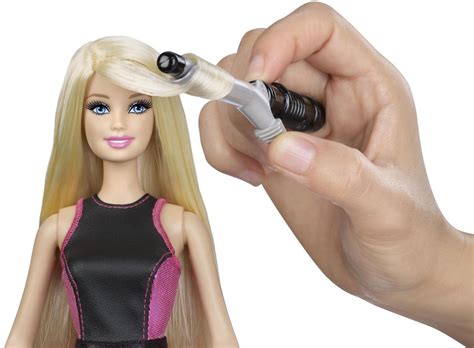Introduction
Wigs have become an integral part of the fashion and beauty industries, offering transformative options for individuals seeking to enhance their appearance, express their creativity, or conceal hair loss. This guide delves into the captivating world of wigs, exploring different types, materials, styles, and applications.

Types of Wigs: A Comprehensive Overview
100 Types of Wigs – From classic lace fronts to trendy halo wigs, the world of wigs is vast.
– Lace Front Wigs:
– Simulate a natural hairline by using a lace base that blends seamlessly with the skin.
– Offer a realistic and versatile look, allowing for various styling options.
– Full Lace Wigs:
– Composed entirely of lace, providing exceptional breathability and comfort.
– Versatile and customizable, allowing for intricate hairstyles and partings.
– Machine-Made Wigs:
– Constructed using a machine, resulting in a durable and budget-friendly option.
– Available in a wide range of styles, colors, and textures.
Materials: The Foundation of Wig Excellence
Synthetic vs. Human Hair – Understanding the Differences in Materials:
– Synthetic Wigs:
– Made from synthetic fibers, offering affordability, durability, and easy maintenance.
– Can mimic different hair textures and colors, providing a wide range of options.
– Human Hair Wigs:
– Crafted from real human hair, offering a natural-looking and luxurious appearance.
– More expensive and require specialized care, but provide unparalleled realism and versatility.
Style and Versatility: Creating the Perfect Look
Wig Styles for Every Occasion – From elegant buns to edgy pixies, discover the endless possibilities:
– Long Wigs:
– Create voluminous and dramatic looks, perfect for special occasions or everyday glam.
– Short Wigs:
– Offer a chic and low-maintenance option, suitable for various face shapes.
– Colorful Wigs:
– Inject vibrant hues into your appearance, experimenting with bold colors and patterns.
– Curly Wigs:
– Add texture and volume to your hair, showcasing playful and carefree styles.
Applications: Beyond Traditional Use
Wigs in the Limelight – Exploring Diverse Applications in Entertainment and Fashion:
– Medical Applications:
– Provide solutions for hair loss caused by medical conditions or treatments.
– Offer comfort and confidence to individuals facing hair-related challenges.
– Entertainment Industry:
– Transform actors into different characters, enhancing the authenticity and impact of performances.
– Fashion and Beauty:
– Elevate fashion shoots and runway looks, creating unique and striking visual effects.
Why Wigs Matter: The Benefits of Wearing a Wig
The Benefits of Wearing a Wig – Embracing the Transformative Power:
– Hair Loss Concealment:
– Effectively conceal thinning hair or baldness, restoring confidence and empowering individuals.
– Style Transformation:
– Experiment with different hairstyles and colors without committing to permanent changes.
– Versatile Options:
– Access a wide range of styles and materials, catering to personal preferences and specific needs.
Strategies for Wig Success: Achieving a Natural-Looking Fit
Selecting the Right Wig – Essential Considerations for a Flawless Fit:
– Face Shape:
– Determine your face shape to choose a wig that complements and enhances your features.
– Hair Density:
– Choose a wig with a density that matches your natural hair volume, avoiding overly dense or sparse wigs.
– Hair Color:
– Select a wig in a color that flatters your skin tone and complements your desired look.
Tips and Tricks: Enhancing Your Wig Experience
Wigology: Expert Tips for Styling and Maintenance:
– Proper Storage:
– Store your wig on a mannequin or wig stand to maintain its shape and prevent damage.
– Regular Cleaning:
– Wash synthetic wigs with shampoo and conditioner, and dry-clean human hair wigs for optimal care.
– Styling:
– Use heat-resistant tools and products to style synthetic wigs, and avoid harsh chemicals on human hair wigs.
– Detangling:
– Use a wide-toothed comb or brush to gently detangle your wig, starting from the ends and working your way up.
Conclusion
Wigs have emerged as a versatile and transformative tool in the fashion, beauty, and medical realms. Understanding the different types, materials, styles, and applications of wigs empowers individuals to enhance their appearance, express their creativity, and address hair-related challenges. By selecting the right wig, incorporating effective strategies, and following expert tips, you can achieve a natural-looking fit and embrace the confidence and versatility that wigs offer.
Tables: Data and Insights for Informed Decisions
Table 1: Market Size of the Global Wig Industry
| Year | Market Value | Annual Growth Rate |
|:—:|:—:|:—:|
| 2021 | $10.5 billion | 4.8% |
| 2022 | $11.2 billion | 6.5% |
| 2027 | $15.6 billion | 7.2% |
Source: Statista, 2023
Table 2: Top Wig-Wearing Countries
| Country | Percentage of Population Wearing Wigs |
|:—:|:—:|
| Nigeria | 45% |
| United States | 38% |
| United Kingdom | 27% |
| Brazil | 25% |
| Ghana | 23% |
Source: International Hair Association, 2022
Table 3: Types of Wigs by Material
| Material | Benefits | Drawbacks |
|:—:|:—:|:—:|
| Synthetic | Affordable, durable, easy to style | Less breathable, less realistic |
| Human Hair | Natural-looking, luxurious, versatile | More expensive, requires specialized care |
Table 4: Applications of Wigs
| Application | Purpose | Target Audience |
|:—:|:—:|:—:|
| Medical | Conceal hair loss due to medical treatments | Cancer patients, alopecia sufferers |
| Entertainment | Transform actors into different characters | Actors, musicians, dancers |
| Fashion | Elevate fashion shoots and runway looks | Models, designers, fashion enthusiasts |
